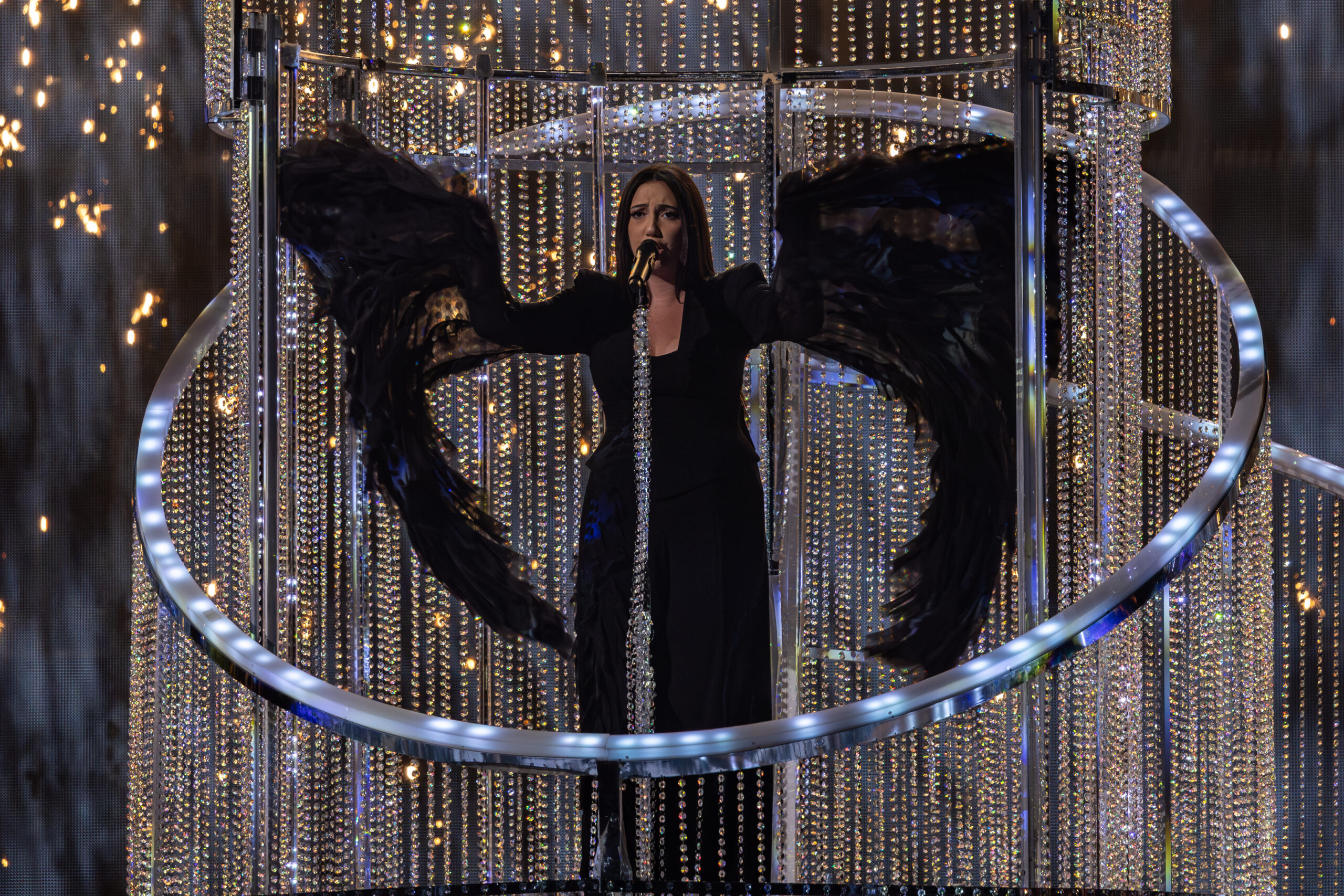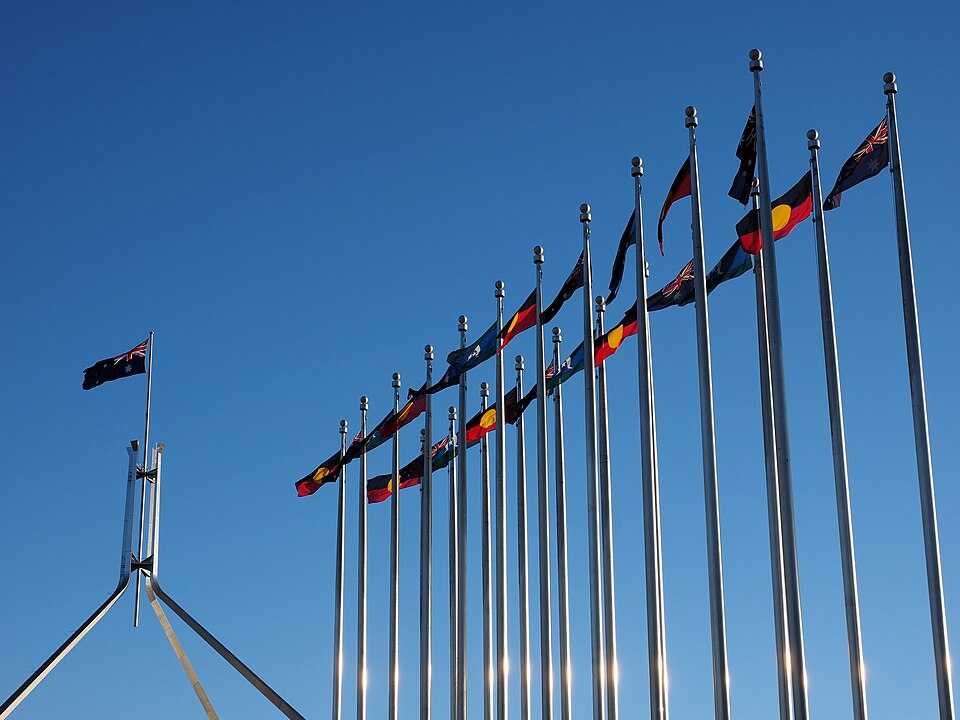Israel’s continued participation in the Eurovision Song Contest has brought the competition into disrepute, sowing greater division across Europe while providing the Israeli government with a platform to advance political narratives legitimising its actions in Gaza. Challenging Israel’s place in Eurovision is an important step that governments in Europe (and Australia) must take to isolate Israel from the international community and pressure the Israeli government to end the humanitarian catastrophe in Gaza and work towards a peaceful two-state solution.
For the second year in a row, Israel’s participation in the Eurovision Song Contest has been a significant source of political controversy, bringing the world’s largest music competition into disrepute. Since the start of Israel’s war in Gaza following the terror attacks by Hamas on 7 October 2023, fans, music artists, and politicians have called on Eurovision’s organisers, the European Broadcasting Union (EBU), to exclude Israel from the competition, arguing that the Israeli government’s actions in Gaza contradict the values that the contest is supposed to represent.
The exclusion of Israel from Eurovision represents a critical element of the broad set of measures that the international community must take, including economic sanctions, to isolate Israel and pressure the Israeli government to immediately cease its military campaign in Gaza, which has increasingly been recognised as genocide. While recognition of Palestine is a step in the right direction for governments in Europe and Australia, it is only through challenging the normalisation of Israel’s actions on the international stage that governments can work towards ending the humanitarian catastrophe in Gaza and progressing a peaceful pathway towards a two-state solution.
However, the EBU—an association of European national public broadcasters—has so far resisted these calls, asserting that Eurovision is a strictly non-political event. This justification by the EBU overlooks the fact that Eurovision is, and always has been, intertwined with politics, and that any decision to include or exclude a nation from the competition is inherently political. By allowing Israel to continue participating in Eurovision, the EBU legitimises political narratives of Israel as an unquestioned defender of Western civilisation and ‘European’ values from the perceived threat of the Muslim ‘Other’.
The instrumentalisation of Eurovision by the Israeli government to advance its political narratives has caused significant damage to the public legitimacy and reputation of the contest. While the EBU has reluctantly acknowledged the need for greater debate on the issue since the 2025 contest, opposing stances among member broadcasters mean that the likelihood of action is still uncertain. Greater public pressure therefore must be placed on the EBU and its member broadcasters to oppose Israel’s participation in Eurovision, as part of an international pressure campaign to stop the atrocities being committed in Gaza.
The Politics of Eurovision
Since the inception of Eurovision in 1956, artists and state broadcasters have utilised the contest’s live televised platform and space for artistic expression to creatively represent themselves and their identities, drawing attention to political issues and events. Eurovision has also reflected and shaped representations of ‘Europe’ as a political concept, institutionalising Western liberal values such as diversity and inclusivity as distinctly ‘European’, while delineating the boundaries of who is and is not considered part of this European community.
For Israel, which has participated since 1973, taking part in Eurovision has played an essential role in reinforcing and projecting its identity as a Western liberal democracy, culturally situated in Europe despite its geographic location in the Middle East. Through Eurovision, for example, Israel has engaged in the practice of ‘pinkwashing’, downplaying its human rights abuses by highlighting its embrace of the LGBTQIA+ community, who represent a significant portion of the Eurovision fan base. In doing so, Israel has been able to portray itself as embodying progressive, modern ‘European’ values, in contrast to its Arab neighbours, which are depicted as repressive and uncivilised.
Such narratives of Israel as a Western bulwark against the threat of radical Islam have frequently been employed to legitimise the ongoing war in Gaza, with Israeli President Isaac Herzog asserting that Israel’s war is intended ‘to save Western civilisation’ and ‘defend the values of liberal societies, of LGBTQ, which Hamas fights endlessly’. Israel’s participation in Eurovision contributes to harmful narratives championed by the Israeli government, of Israel as the defender of Western civilisation from the threatening Muslim ‘Other’ seeking to destroy Europe’s liberal values.
Eurovision’s public voting system has provided another means through which the Israeli government has attempted to strengthen the legitimacy of its war in Gaza. In 2025, Israeli government agencies and pro-Israel advocacy groups coordinated unprecedented media campaigns urging viewers to vote for Israel’s Eurovision entry, highlighting the importance of Eurovision to the Israeli government and its exercise of soft power on the international stage.
Israel ultimately received the highest televote score in the 2025 contest, which the Israeli government has been able to interpret as an indicator of broad international public approval for its actions, similar to Ukraine’s landslide Eurovision win in 2022. However, unlike in the case of Ukraine, Israel’s results have instead sown greater division in Europe, eroding public trust in Eurovision and the EBU itself, and fuelling concerns among both fans and broadcasters about the integrity and transparency of the voting system.
The Future of Eurovision
By 2025, four of the EBU’s member broadcasters had begun publicly calling for Israel to be excluded from Eurovision, with Spanish Prime Minister Pedro Sánchez lending his voice to these calls. However, unlike the public uproar in 2022, which forced the EBU to ban Russia from the contest, most broadcasters have continued to remain silent on the issue, reflecting the largely cautious approach taken by European (and Australian) governments towards the Israeli government’s human rights violations in the occupied Palestinian territories.
Rather than providing a platform for the Israeli government to whitewash its image and advance strategic narratives portraying Israel as a righteous defender of liberal ‘European’ values, European (and Australian) governments and their public broadcasters must pressure the EBU to exclude Israel from the contest as part of a concerted effort to isolate it from the international community. As the sporting boycotts against the South African apartheid regime demonstrated, excluding Israel from international cultural events, in addition to adopting economic sanctions, would place greater international pressure on the Israeli government to cease its genocidal actions in Gaza.
The recent departure of Eurovision executive supervisor Martin Österdahl provides a crucial opportunity for change in the EBU’s approach to the issue of Israeli participation. At the EBU General Assembly in July, Israel’s participation was reportedly debated between member broadcasters for ninety minutes before a final decision was postponed until December. While momentum is now growing for greater international action to end the conflict in Gaza and enact a two-state solution, the Israeli government continues to ignore international demands for peace, instead choosing to take even more extreme actions over the past month.
As such, governments in Europe and Australia must increase global pressure on the Israeli government to work with the international community to find a peaceful solution in the occupied Palestinian territories. Excluding Israel from international cultural events like Eurovision is an impactful way to meaningfully protest against the Israeli government’s human rights abuses.
Ethan Chan is a Bachelor of Philosophy (Honours) – Humanities and Social Sciences (PhB – HaSS) student at the Australian National University, studying political science and international relations. He is a former intern at the AIIA National Office.
This article is published under a Creative Commons Licence and may be republished with attribution.




